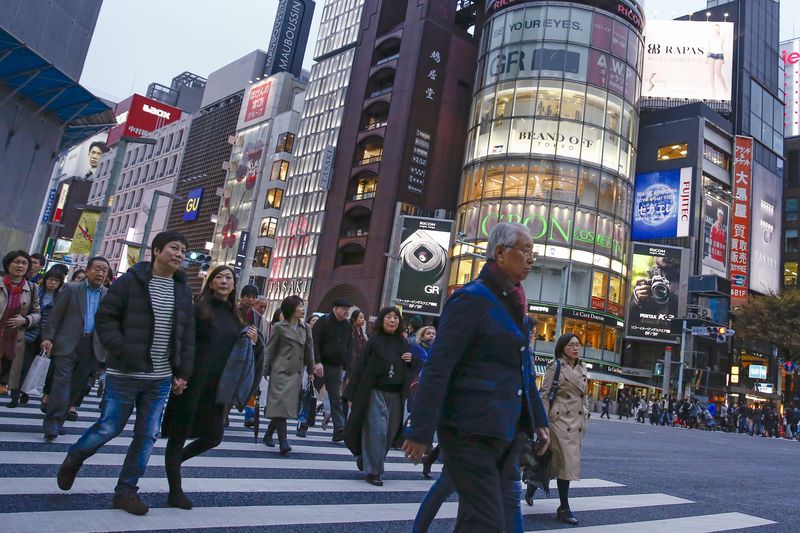TSX higher after index snaps two-day losing streak
Investing.com -- Consumer price index inflation in Japan’s capital grew slightly less than expected in June, data showed on Friday, helped chiefly by smaller increases in the prices of food and fuel.
Tokyo core consumer price index inflation, which disregards volatile fresh food prices, grew 3.2% in June from the prior year, data from Japan’s Statistics Bureau showed.
The reading was lower than expectations for growth of 3.3%, but remained steady from the prior month.
Overall CPI inflation in Japan’s capital grew 3.1% in June, lower than expectations of 3.8% and the prior month’s reading of 3.2%.
But a core inflation indicator which ignores both fresh food and energy prices grew 3.8% through June, remaining close to a 40-year peak hit in the prior month. The reading indicated that the recent decline in Japanese inflation was largely driven by stabilizing fresh food and fuel prices, and that underlying inflation in the country remained high.
The Tokyo inflation data usually heralds a similar trend in nationwide inflation, given that Tokyo is the country’s biggest city, and indicates that inflation remains sticky despite constant efforts by the government to curb it.
Countrywide Japanese inflation rose slightly more than expected in May, and disregarding fresh food and energy prices, inflation remained at 40-year highs. High import prices, driven in part by fresh weakness in the yen, have also been an upward driver of inflation over the past year.
Government subsidies on electricity prices helped pull overall Japanese inflation away from 40-year highs. But they have so far had only a limited effect on price pressures, with inflation still remaining well above the Bank of Japan’s annual target of 2%.
Sticky inflation is expected to eventually push the BOJ to begin tightening its ultra-loose policy, although the bank has insisted that it has no plans to do so in the near-term.
